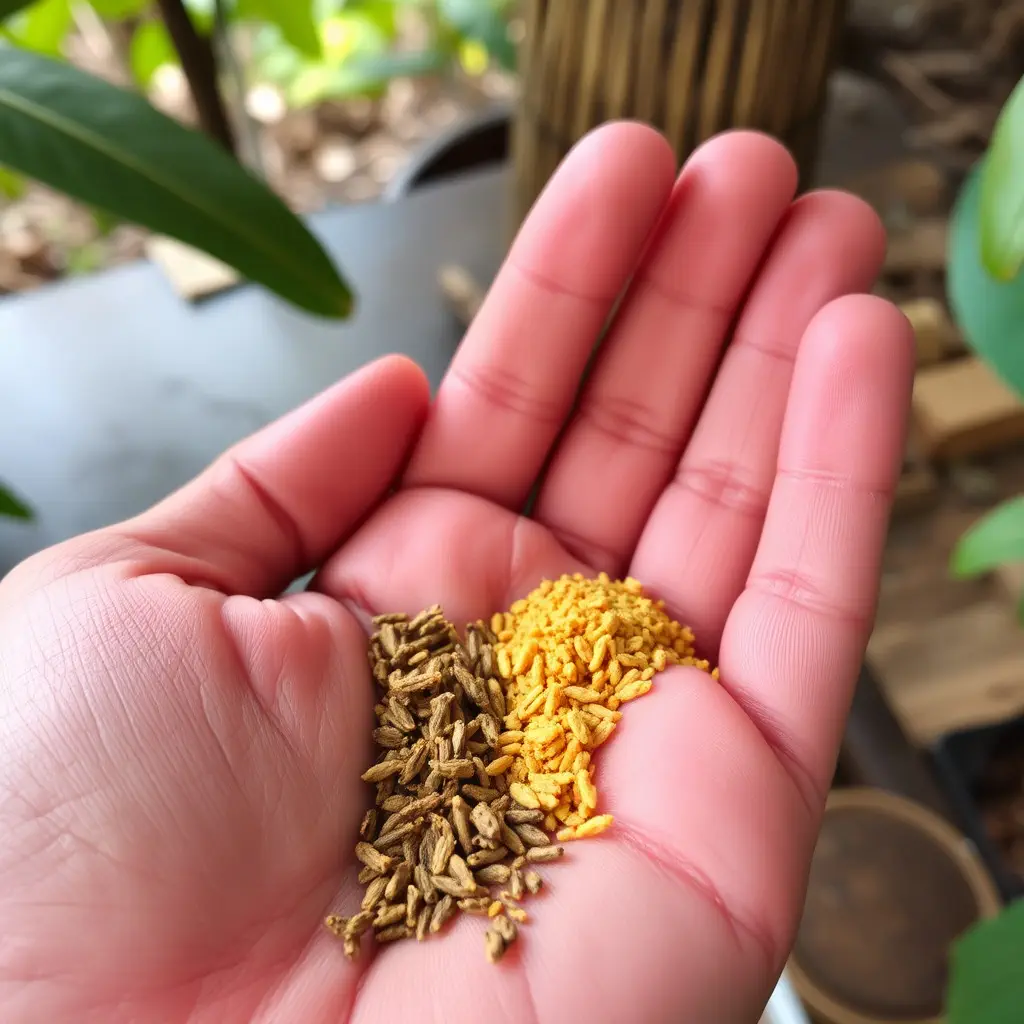Mental toughness enhances performance under stress and can be bolstered by kratom, a natural supplement from Mitragyna speciosa leaves. Kratom's effects on mental endurance and motivation are well-documented, but its impact on liver health is contentious. Research indicates that chronic or high-dose kratom use may have hepatotoxic effects, raising concerns about its safety, particularly under the lens of "is kratom hard on the liver?" Users must approach kratom with caution, especially those with pre-existing liver conditions or engaging in activities that strain the liver. To mitigate risks, it's crucial to use kratom responsibly by following usage guidelines, moderating intake, and undergoing regular medical assessments. A balanced diet high in antioxidants, consistent exercise, adequate hydration, and sufficient sleep support overall well-being and liver health. It's essential to monitor personal responses to kratom and consider non-substance mental conditioning techniques for resilience. Regular medical evaluations are recommended for early detection of any liver issues. By combining careful kratom use with these health strategies, individuals can pursue their training goals effectively while maintaining liver health and mental fortitude.
Engaging in training regimens, whether physical or mental, often hinges on an individual’s resilience and endurance. Mental toughness plays a pivotal role in this endeavor, particularly when incorporating kratom into one’s routine. This article explores the intricacies of mental fortitude as it pertains to training with kratom, a botanical supplement known for its stimulant and analgesic properties. We will delve into understanding mental toughness, its significance in kratom training, and how to maintain liver health—addressing common misconceptions about is kratom hard on the liver. Furthermore, we will provide actionable strategies to enhance mental resilience while mitigating potential risks associated with kratom use. Join us as we navigate this complex intersection of mind, body, and natural supplementation.
- Understanding Mental Toughness and Its Role in Training with Kratom
- Safeguarding Liver Health During Kratom Use: Myths and Facts
- Strategies for Enhancing Mental Resilience and Mitigating Risks While Training with Kratom
Understanding Mental Toughness and Its Role in Training with Kratom

Mental toughness refers to the psychological edge that helps individuals persevere and thrive in high-stress, challenging environments, including during athletic or physical training regimens. It encompasses resilience, commitment, confidence, and concentration, allowing individuals to push beyond their limits and maintain focus even when faced with obstacles. In the context of training with kratom, a natural supplement derived from the leaves of Mitragyna speciosa, mental toughness becomes particularly relevant due to the substance’s effects on mood and energy levels. Kratom is known for its stimulant and sedative properties, which can impact a trainee’s endurance and motivation. Understanding how kratom interacts with one’s mental state is crucial for integrating it effectively into a training routine.
It’s important for individuals considering the use of kratom in their training to be aware of potential health concerns, such as the question of whether kratom is hard on the liver. While some studies suggest that kratom might have hepatotoxic effects, particularly with prolonged use or at high doses, more research is needed to fully understand its impact on liver health over time. Users should approach kratom with caution and monitor their health closely, especially if they have pre-existing liver conditions or engage in activities that could stress the liver. Balancing mental toughness with responsible use of kratom involves careful dosing, understanding one’s personal tolerance, and maintaining a healthy lifestyle to mitigate any adverse effects on the body. This balance can enhance the training experience and contribute to long-term health and performance.
Safeguarding Liver Health During Kratom Use: Myths and Facts

Kratom, a plant native to Southeast Asia, has gained popularity for its potential effects on mood and energy levels. As with any substance that affects liver function, concerns about kratom’s impact on liver health are prevalent. It’s a common misconception that kratom is excessively taxing on the liver, similar to how alcohol or certain prescription drugs can be. However, scientific research has provided mixed results regarding kratom’s effect on liver function. While some studies have suggested that long-term use of kratom might pose potential risks to liver health, these findings are not conclusive. It’s crucial to differentiate between the effects of kratom and other substances that more directly and acutely affect the liver, like acetaminophen overdose.
To safeguard liver health during kratom use, it is important to adhere to responsible usage guidelines. This includes limiting the quantity consumed, being mindful of frequency and duration of use, and ensuring that one’s liver function is regularly monitored by a healthcare professional. Additionally, combining kratom with other substances should be avoided as this can increase the strain on the liver. Maintaining a balanced diet rich in antioxidants and engaging in regular exercise can further support liver health. It’s also worth noting that individual sensitivity to kratom can vary, so personal experiences may differ, and ongoing research continues to shed light on this complex topic. Therefore, while there are concerns regarding kratom’s impact on the liver, responsible use and monitoring can play a significant role in maintaining liver health.
Strategies for Enhancing Mental Resilience and Mitigating Risks While Training with Kratom

incorporating kratom into a training regimen can be beneficial for mental toughness, but it’s imperative to approach its use with caution due to concerns about its liver effects, as some research indicates that kratom can be hard on the liver. To enhance mental resilience while minimizing health risks, strategic planning and moderation are key. Firstly, adopting a balanced diet rich in antioxidants and nutrients can support liver health and overall well-being, which is crucial when including kratom in your regimen. Regular exercise, hydration, and adequate sleep further contribute to mental fortitude and help mitigate potential negative effects of kratom on the liver.
Secondly, it’s advisable to consult with a healthcare provider before starting any training program that involves kratom to understand its implications for your specific health conditions. Monitoring your body’s response to kratom is also essential; pay close attention to any signs of liver distress, such as jaundice or unusual fatigue. Strategy-wise, incorporating mental conditioning techniques like visualization, mindfulness, and cognitive behavioral exercises can bolster your mental resilience. These practices not only complement the physical aspects of training but also prepare you mentally for challenges, thereby reducing reliance on kratom as a crutch for performance or motivation. Regular medical check-ups should be integrated into your routine to ensure that any potential liver issues are caught early and addressed promptly. By combining these strategies with careful kratom use, athletes and fitness enthusiasts can pursue their training goals while maintaining mental toughness and safeguarding their health.
In conclusion, mental toughness is a pivotal aspect of training with kratom, and by understanding its role and implementing strategic measures, individuals can enhance their resilience while mitigating potential risks. It’s crucial to approach kratom use with caution, particularly concerning liver health, as concerns about kratom’s impact on this organ persist. Our exploration has dispelled some myths regarding kratom’s hardness on the liver and provided practical strategies to ensure safe and effective training experiences. By adhering to these guidelines and maintaining a clear understanding of both the benefits and limitations of kratom, practitioners can foster mental fortitude and protect their overall well-being during their training regimen.






